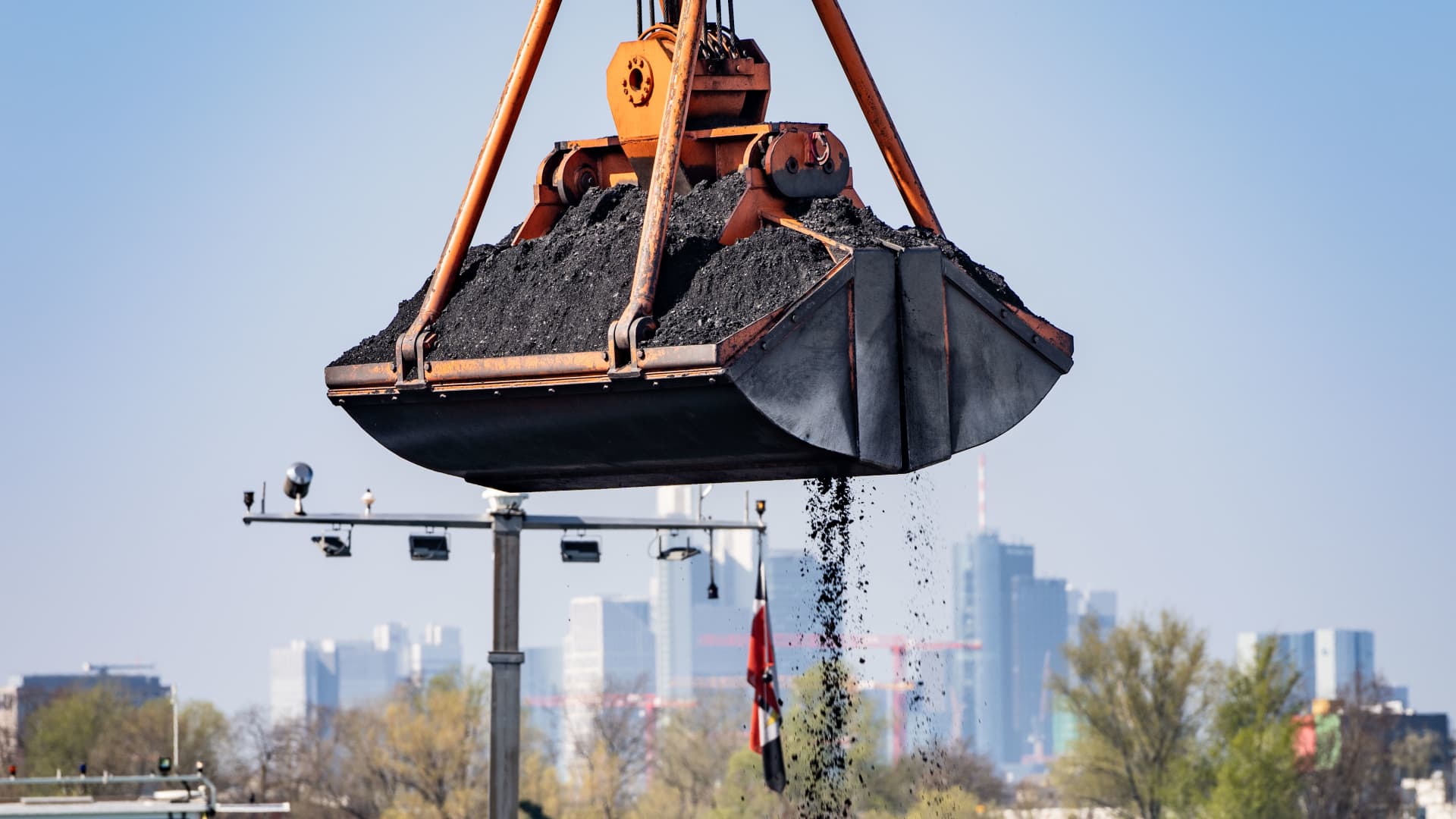
French President Emmanuel Macron has called for the EU to ban Russian coal as part of a wave of new sanctions to further isolate the Kremlin.
Frank Rumpenhorst | Picture Alliance | Getty Images
LUXEMBOURG — The European Commission will propose banning Russian coal as part of a new round of sanctions against the Kremlin for its unprovoked invasion of Ukraine.
Two EU officials, who did not want to be named due to the sensitivity of the talks, told CNBC Tuesday that the executive arm of the EU will propose coal be included in the penalties.
Imposing sanctions on the Russian energy sector has been a challenge for the EU given the high level of dependency that some member states have on the country’s energy supplies.
According to data from the European statistics office, the EU imported 19.3% of its coal from Russia in 2020. It imported 36.5% of its oil from the country in the same year, and 41.1% of its natural gas.
However, mounting evidence of war crimes committed by Russian forces in Ukraine has pushed the commission to propose coal be added to its fifth package of sanctions against Moscow.
The new set of measures will be discussed by European ambassadors Wednesday. Final approval of the sanctions won’t happen until after the talks, and the proposals could still change before the ambassadors meet.
There has been growing pressure on Europe to target the Russian energy sector, particularly as energy-importing countries continue to top up President Vladimir Putin’s war chest with oil and gas revenue on a daily basis.
However, the issue divides the EU, with some nations supportive of banning Russian energy imports, while others argue that such a move would hurt their own economies more than Russia’s.
France’s President Emmanuel Macron, for instance, said Monday that the bloc should go ahead with sanctions against Russian oil and coal in the wake of the reports of atrocities in towns close to Ukraine’s capital Kyiv.
However, Germany appears less convinced that such a move is possible, especially when it comes to natural gas supplies.
“We want to be, [in the] short time, less dependent on Russian energy imports to the European Union and Germany will support further sanctions on Russia,” German Finance Minister Christian Lindner told CNBC in Luxembourg on Monday.
“We have to put more pressure on Putin and we have to isolate Russia — we have to cut all economic relationships to Russia, but at the moment it is not possible to cut the gas supplies.”




